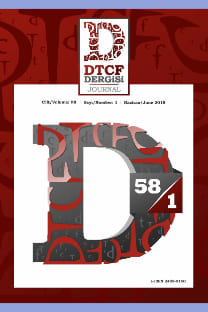MONARŞİ VE MODERNİTE: ÇEK MİLLİYETÇİLİĞİ VE HABSBURG İMPARATORLUĞU'NUN SON DÖNEMİ
MONARCHY AND MODERNITY: CZECH NATIONALISM AND THE LATE HABSBURG EMPIRE
___
- Agnew, Hugh LeCaine. "Czechs, Germans. Bohemians?" Creating the Other: Ethnic Conflict and Nationalism in Habsburg Central Europe. Ed. Nancy Wingfield. New York: Berghahn Books, 2003.
- Albrecht, Catherine. "Rural Banks and Czech Nationalism in Bohemia, 1848-1914." Agricultural History 78.3 (2004): 317-345.
- Bradley, J.F.N. "Czech Pan-Slavism before the First World War." The Slavonic and East European Review 40.94 (1961):18 4-205.
- Cohen, Gary B. "Recent Research on Czech Nation-Building." The Journal of Modern History 51.4 (1979): 760-772.
- ---. The Politics of Ethnic Survival: Germans in Prague, 1861-1914. West Lafayette: Purdue University Press, 2006.
- Cornwall, Mark. "The Struggle on the Czech-German Language Border, 1880-1940."
- The English Historical Review 109 (1994): 914-951.
- Fiedler, Leslie A. "Foreword." The Good Soldier: Schweik. Jaroslav Hasek. New York: Amereon House, 1963.
- Garver, Bruce M. The Young Czech Party, 1874-1901, and the Emergence of a MultiParty System. New Haven: Yale University Press, 1978.
- Glassheim, Eagle. "Between Empire and Nation: The Bohemian Nobility, 1880- 1918." Constructing Nationalities in East Central Europe. Eds. Pieter M. Judson ve Marsha L. Rozenblit. New York: Berghahn Books, 2005
- Good, David F. "The Economic Lag of Central and Eastern Europe: Income Estimates for the Habsburg Successor States." The Journal of Economic History 54.4 (1994): 869-891.
- Hasek, Jaroslav. Aslan Asker Şvayk. Çev. Celâl Üster. İstanbul: Can, 2006. Hunczak, Taras. Russian Imperialism from Ivan the Great to the Revolution. New York: Rutgers University Press, 1974.
- İşci, Onur. "Wartime Propaganda and the Legacies of Defeat: The Russian and Ottoman Popular Presses in the War of 1877-78." Russian History 41 (2014): 181-196.
- Jaszi, Oscar. "Some Recent Publications Concerning the Dissolution of the Habsburg Monarchy." The Journal of Modern History 2.1 (1930): 96-110.
- ---. The Dissolution of the Habsburg Monarchy. Chicago: University of Chicago Press, 1961.
- Kann, Robert A. The Multinational Empire: Nationalism and National Reform in the Habsburg Monarchy, 1848-1918. New York: Columbia University Press, 1950.
- Kelly, T. Mills. Without Remorse: Czech National Socialism in the Late Habsburg Austria. Boulder: East European Monographs, 2006.
- King, Jeremy. Budweisers into Czechs and Germans: A Local History of Bohemian Politics, 1848-1948. Princeton: Princeton University Press, 2002.
- Kohn, Hans. "The Viability of the Habsburg Monarchy." Slavic Review 22.1 (1963): 37-42.
- Miller, Michael. "The Rise and Fall of Archbishop Kohn: Czechs, Germans, and Jews in Turn-of-the-Century Moravia." Slavic Review 65.3 (2006): 446-474.
- Parrott, Cecil. The Bad Bohemian: A Life of Jaroslav Hasek, Creator of the Good Soldier Svejk. London: The Bodley Head, 1978.
- Pech, Stanley Z. The Czech Revolution of 1848. Chapel Hill: University of North Carolina Press, 1969.
- ---. "The Passive Resistance of the Czechs, 1863-1879." The Slavonic and East European Review 36.87 (1958): 434-452.
- Redlich, Josef. Das österreichische Staats und Reichsproblem. Leipzig, 1920.
- ---. Kaiser Franz Joseph von Osterreich: Eine Biographie. Berlin, 1928.
- Remak, Joachim. "The Healthy Invalid: How Doomed the Habsburg Empire?" The Journal of Modern History 41. 2 (Jun., 1969): 127-143.
- Sked, Alan. "Historians, the Nationality Question and the Downfall of the Habsburg Empire." Transactions of the Royal Historical Society 31 (1981): 175-193.
- ---. The Decline and Fall of the Habsburg Empire, 1815-1918. London: Longman, 1989.
- Sobota, Emil. "Czechs and Germans: A Czech View." The Slavonic and East European Review 14.41 (1936): 301-320.
- Stern, J.P. "War and the Comic Muse: The Good Soldier Schweik and Catch-22." Comparative Literature 20.3 (1968): 193-216.
- Stone, Norman. "Army and Society in the Habsburg Monarchy." Past and Present 33 (1966): 95-111 . ---. The Eastern Front: 1914-17. London: Purnell Book Club, 1975.
- Sugar, Peter F. "The Nature of the Non-Germanic Societies under Habsburg Rule." Slavic Review 22.1 (1963): 1- 30.
- ---. "Statues of Emperor Joseph II as Sites of German Identity." Staging the Past: The Politics of Commemoration in Habsburg Central Europe. Eds.Nancy M Wingfield ve Maria Bucur. West Lafayette: Purdue University Press, 2001.
- Taylor, A.J.P. The Habsburg Monarchy: A History of the Austrian Empire and AustriaHungary, 1809-1918. Chicago: The University of Chicago Press, 1948.
- ISSN: 0378-2905
- Yayın Aralığı: 2
- Başlangıç: 1942
- Yayıncı: Ankara Üniversitesi Dil ve Tarih-Coğrafya Fakültesi
GIVING VOICE TO MULTIPLE REALITIES: POLYPHONY AND MAGIC REALISM IN MIDNIGHT'S CHILDREN
ONDALIK KESİRLERİN OSMANLI MUHASEBE MATEMATİĞİ ESERLERİNDEKİ YERİ (15-17. YÜZYIL)
SARAH KANE'S CLEANSED AS A CRITICAL ASSESSMENT OF DISCIPLINARY POWER
YAZMA ESERLERİN MARC TABANLI NİTELENMESİNE TERMİNOLOJİK YAKLAŞIM
THE 'GOTHIC' IN HAMLET: THE ROLE OF THE MACABRE IN CREATING CATHARTIC HORROR1
İLKOKUL, ORTAOKUL VE LİSE ÖĞRENCİLERİNDE ULAMSAL ÖRGÜTLEME ÇERÇEVESİNDE TAKSONOMİK FARKINDALIK
RUSÇANIN KONUŞMA DİLİNİN YAPISAL ÖZELLİKLERİ
GIUSEPPE TOMASI DI LAMPEDUSA VE "IL GATTOPARDO" DA YAŞAM, ÖLÜM VE SONSUZLUK ARZUSU
GIOVANNI PAPINI'NİN BİTİK ADAM ADLI YAPITINDA PRAGMATİZME BAKIŞ
